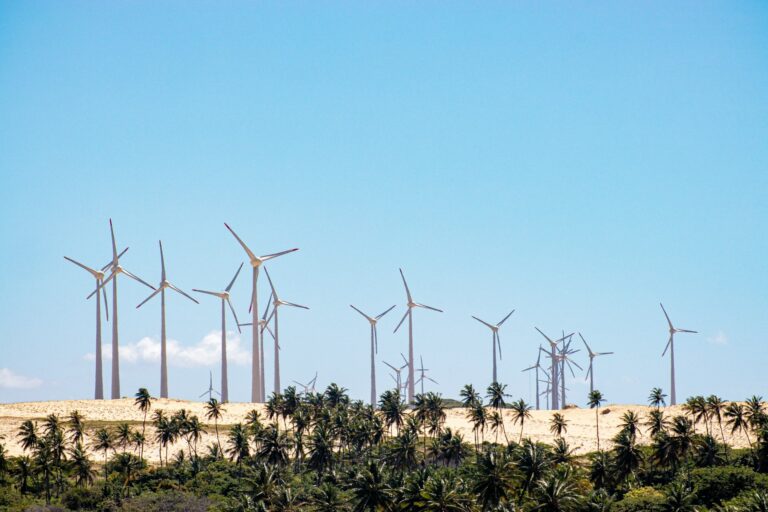Decoding Latin America: key insights for understanding climate action in the region

Photo: Vitor Paladini, Unsplash
Download
This report, co-produced with the Centre for Economic Transition Expertise (CETEx), decodes the landscape of political and economic climate action in Latin America by providing a synthetic overview of 10 Latin American countries as of early November 2025: Argentina, Brazil, Chile, Colombia, Costa Rica, Ecuador, Mexico, Panama, Peru and Uruguay. It is designed to inform policymakers, researchers and finance actors who intend to engage with stakeholders from the analysed countries during the 30th meeting of the Conference of the Parties (COP30), which will take place in Brazil from 10 to 21 November 2025.
Key insights
- Argentina has high clean energy potential and large lithium reserves. Some national initiatives aim to leverage these resources, but they seem to lack a sustainable approach. A development model reliant on fossil fuels is being prioritised and political commitment to climate action has weakened. However, subnational climate action seems to be progressing.
- Brazil’s main challenge is halting deforestation, which is particularly difficult due to perceived short-term economic trade-offs given the direct link between deforestation and the agricultural sector. The current administration promotes green industrialisation and the country’s well-developed financial ecosystem is key to channelling international capital towards its net zero transition.
- Chile has abundant natural resources and renewable energy potential, and has so far profited from policy and market signals that have helped shut down coal power plants, expand solar and wind power, and develop sustainable industrial strategies. However, economic and institutional bottlenecks in electricity transmission and project approval have impeded further progress and the frontrunner in the 2025 national elections may weaken political consensus on climate action.
- Colombia’s measures to halt oil and gas exploration have destabilised energy prices, increased investors’ perceived risk and reduced investment. Still, the government’s environmental agenda has had a few successes, including bringing renewables to poorly connected areas. However, reaching net zero will heavily depend on rural development pathways, where illegal groups thrive.
- Costa Rica is a regional clean energy pioneer and is facing growing political tensions around its decarbonisation agenda. The continuity and protection of the country’s climate action progress depend heavily on securing adaptation finance, particularly for developing resilient infrastructure, reducing dependence on hydropower, and addressing rising organised crime.
- Ecuador’s economy depends on fossil fuels and its hydroelectricity production has been failing due to water shortages. There are opportunities to diversify the country’s electricity supply by drawing on its wind and solar potential, but strong investment barriers persist. Ecuador exports copper, but developing the sector while addressing community concerns around its impacts is challenging.
- Mexico’s main climate challenge lies in its energy transition, which is hampered by fossil fuel dependence, vested interests, energy subsidies and institutional barriers. Additionally, urgent adaptation efforts require stronger support and coordination with subnational governments, as the national government is trying to balance fiscal pressures and high public debt.
- Panama aims to advance its renewable energy production while managing associated challenges, including water stress threatening hydropower-electricity production and the functioning of the Panama Canal, fiscal pressures, and risks posed by land use change. Advancing both its energy transition and forest protection strategies is key to securing Panama’s climate goals through to 2050.
- Peru is a mining economy facing high political volatility and institutional weakness. Advancing climate action requires ensuring the mining sector is aligned with environmental protection and socioeconomic objectives. Key greenhouse gas mitigation actions include reducing deforestation (which is linked to agricultural and mining activities) and increasing renewable energy generation.
- Uruguay is a regional leader in the energy transition, committed to climate action, having consistently developed initiatives in this respect, including innovative financial decarbonisation instruments. It is working towards its ‘second energy transition’ to address fossil fuel use beyond electricity. Agriculture remains a challenging sector for greenhouse gas mitigation.

